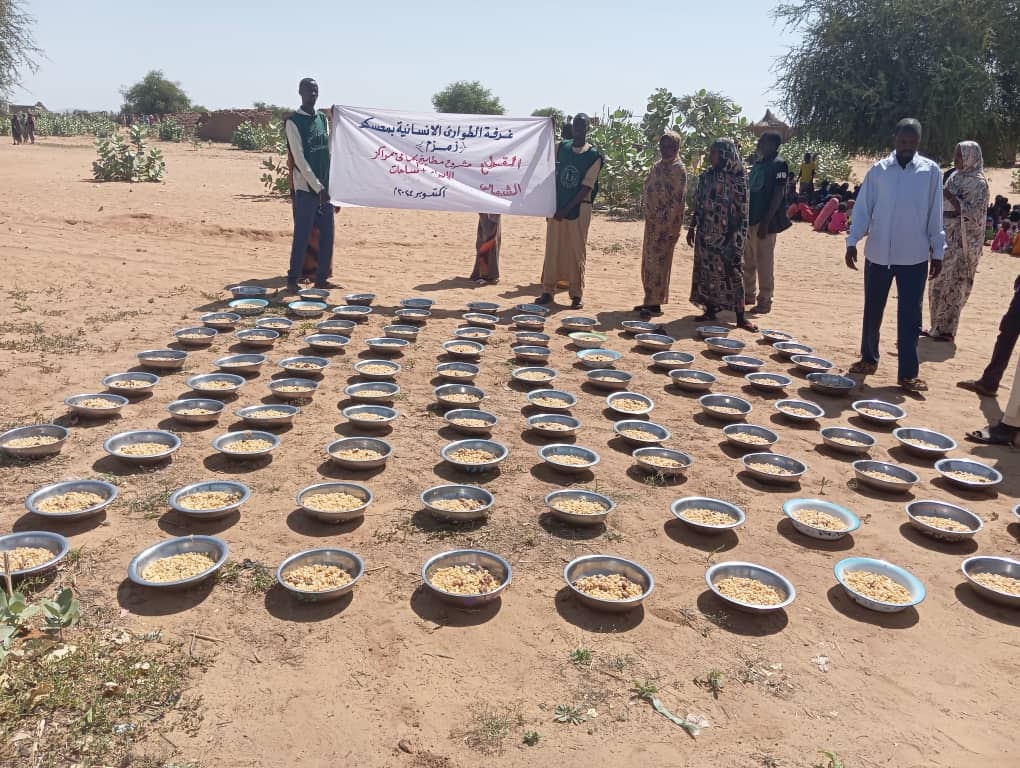
The Sudanese “Takiya” (plural: Takaya) derives its name from the hospitable establishments founded by Sufi order sheikhs to shelter the poor, travelers, and their followers. These sanctuaries provided free sustenance to guests throughout their stay, seeking divine favor through acts of charity.
Over time, many Takaya evolved into Khalawi (Quranic schools) and educational institutions for Sufi adherents, impoverished individuals, and homeless children. These Takaya and Khalawi played a crucial role in the self-reliant social security system of Sudanese villages and cities . They were primarily funded by Sufi followers and farmers, with recent support coming from the state’s social security system.
Today, the term “Takiya” has been adopted to describe community kitchens organized by women in neighborhoods afflicted by war and siege. Each household contributes what they can to these collective culinary efforts.
This phenomenon may be unique in war-torn regions typically dependent on global humanitarian aid. It merits further study by humanitarian organizations, which often incur substantial costs in recruiting volunteers and staff for aid distribution.
In light of the current humanitarian crisis in Sudan, where international aid has been severely hampered by the intransigence of warring parties, even to refugee and displaced persons camps, despite global and local appeals, we propose a novel approach . We urge humanitarian organizations to explore methods of delivering urgent assistance to the volunteer-run “Takaya” (community kitchens) .

This strategy would not only ensure aid reaches those in desperate need but would also leverage the existing grassroots volunteer networks. By supporting these local initiatives, aid organizations can:
*Circumvent access barriers that have stymied traditional aid delivery methods
*Tap into established community structures with deep local knowledge
* Amplify the impact of their resources through existing volunteer efforts
*Foster community resilience and self-reliance in the face of ongoing conflict
This approach aligns with the principles of localization in humanitarian aid, potentially offering a more sustainable and culturally appropriate means of support during this critical time. It could serve as a model for future crisis response, particularly in contexts where traditional aid channels are obstructed.

